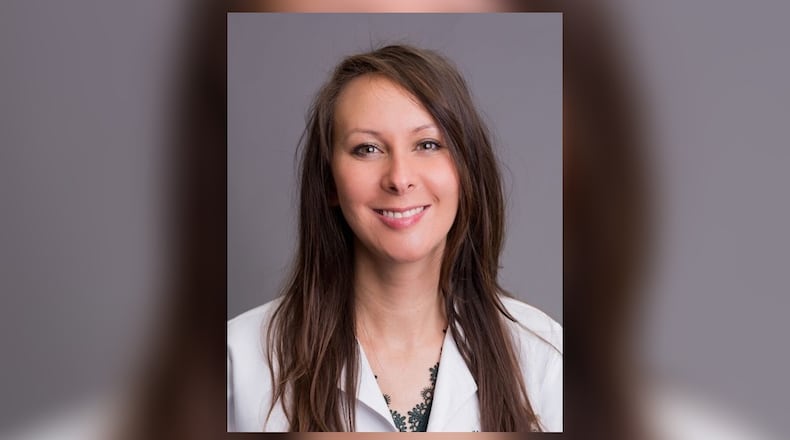Enshrining their amendment into the Ohio constitution is a course of action so dangerous it would legalize abortion through all nine months of pregnancy, well after unborn babies can feel pain, and even deny loving parents the right to consult with their own daughters about their abortion decisions. It also overlooks the vast network of pregnancy resource centers (PRCs) that already exist for the purpose of supporting the physical and mental health of expecting mothers.
I have volunteered at PRCs for decades, and my positive experience volunteering at one in college inspired my career as an OB/GYN, which is where I first witnessed the instant connection of a woman with her baby. It’s also where I saw firsthand the ways in which abortion harms women.
In my years in practice, I have never met a woman who has expressed regret over giving birth to her baby, but I have met plenty who shared their regret for having abortions. Unfortunately, these women are frequently pressured into abortions, in part due to the commonly held misperception that they could never financially support themselves and a new child or balance the demands of parenting. In fact, I’ve treated many women who say that they began experiencing anxiety and depression at the time of their abortion.
The statistics reveal that abortion carries with it a wide range of detrimental, long-term physical and mental-health consequences. Women face higher rates of depression, anxiety, substance abuse and suicidal behavior after having an abortion. One study even found that women’s suicide rate after an abortion is six times higher than after childbirth. Fortunately, PRCs have robust post-abortion counseling programs aimed at helping to alleviate the emotional pain and suffering that often plagues women before and after receiving abortions.
In addition to compassionate counseling, PRCs offer free resources such as childbirth and breastfeeding classes and infant safety classes. Women and their partners can also enroll in marriage enrichment classes at their PRC, programs that equip both parents to remain committed to each other and their newborn. Women can also reach out to a PRC to help her find adoptive parents for the newborn.
In my 20 years of experience working with PRCs I’ve seen them operate with the woman’s best interests in mind from the moment she crosses the doorstep. They offer basic health screenings, assess for domestic violence, help women apply for aid to provide meals and medical care for their family and encourage postpartum visits to ensure their own health after pregnancy.
The holistic mission of PRCs is to empower women emotionally, support them financially and encourage them spiritually so that they never even have to consider terminating the life of their child. Today, PRCs outnumber Planned Parenthood’s abortion centers 14-to-1 nationwide, a testimony to the high-quality support, education and medical care provided to empower the women who seek them out for assistance.
Despite their effective care for women, PRCs have endured a horrific wave of vandalism and threats of violence since the Supreme Court’s decision. Even the American College of Obstetricians and Gynecologists, a professional medical association of which I am a member, wrongly took aim at PRCs in 2022 by absurdly accusing them of harming the mothers they help.
The proposed amendment to Ohio’s constitution is the latest in a string of attacks on women’s health and safety. The evidence shows that late-term abortions, which it would legalize, are more dangerous for women physically and lead to worse mental health outcomes. And if adopted, the amendment’s broad language would block parents from ever offering help and advice to young women before making the irreversible decision to abort the children in their wombs and leave them more vulnerable to intimate partner violence, sex trafficking and other forms of coercion.
PRCs empower women with a comprehensive alternative to the dangers of abortion by providing them the care and comfort they so deeply desire. It’s vital that Ohio voters oppose the misnamed “Right to Reproductive Freedom with Protections for Health and Safety” amendment on the ballot this November and instead allow PRCs to provide both mother and child the resources they need for their health and safety.
Dr. Vivina Napier is a board-certified OB/GYN who practices in Dayton, Ohio.
About the Author
